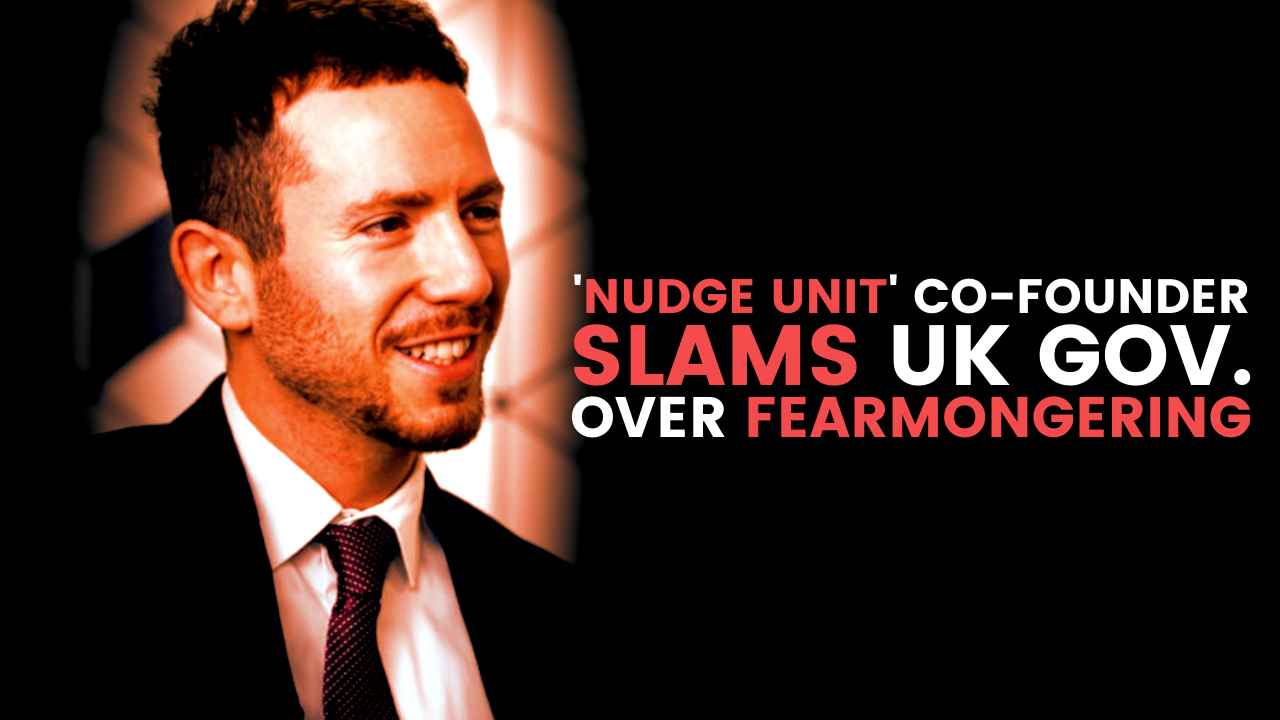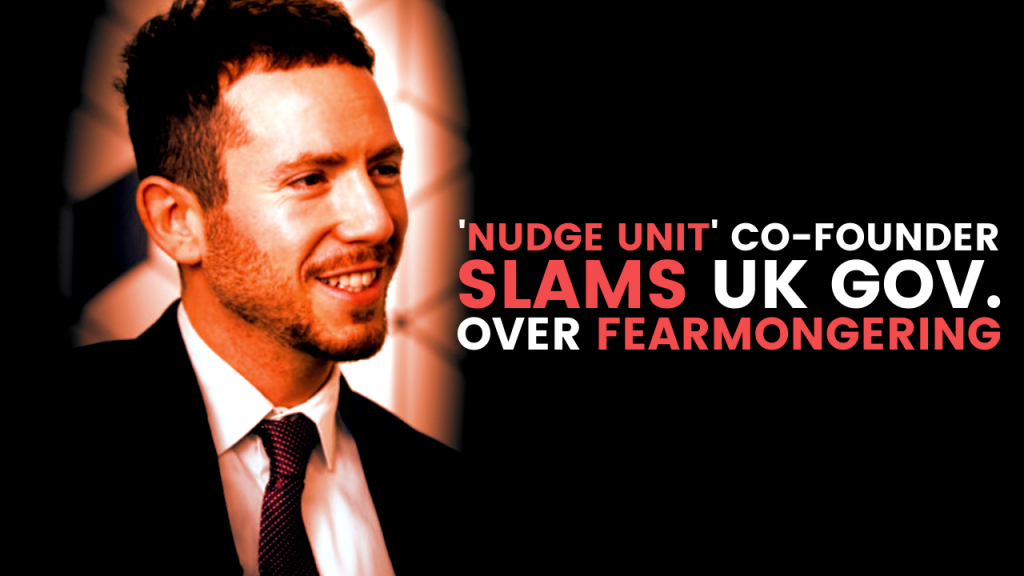
Step aside, China. Taking a page out of George Orwell’s 1984, the British government used “propagandistic” fear tactics to drive up the fear of COVID-19 and scare the public into mass compliance during the nation’s first COVID lockdown.
Simon Ruda, a co-founder of No. 10’s “Nudge Unit” of the British government, says that the government weaponized the pandemic for mass compliance and created a dangerous feedback loop that amounted to “state-sanctioned propaganda.”
The so-called “Nudge Unit,” also known as the Behavioural Insights Team, played a massive role in helping the government formulate its response to the coronavirus. The group’s previous successes include:
-
Boosting diversity in Britain’s law enforcement agencies.
-
Helping the Job Centre get more people off benefits.
-
Raising the number of organ donors throughout the UK.
Although the David Cameron government initially established it in 2010 to encourage and shape positive behavioural changes in the British public without the need for coercion or heavy-handed laws, the strategies the team devised went too far and turned into a negative feedback loop, says Ruda.
Writing for UnHerd magazine, Ruda says that fear was first used to boost public compliance, but more worryingly, it has continued to the point of being “propagandistic.”
He suggested that the obsession with daily case numbers has come to dominate its coverage, serving to spread fear far and wide. The process has, in turn, caused the threat posed by COVID to be greatly exaggerated, producing alarmist propaganda to frighten the population into compliance.
“Because behavioural science can be so broadly applied, it is equally broadly defined,” Ruda explained. “Of these two examples, the first sticks closely to Richard Thaler’s mantra – making it easier to overcome a clearly defined barrier to achieve an uncontroversial gain; the second, however, feels more propagandistic.”
“In my mind, the most egregious and far-reaching mistake made in responding to the pandemic has been the level of fear willingly conveyed on the public,” Ruda added.
British MPs have been slammed for lending too much credence to “worst-case” scenarios based on unproven mathematical models that projected millions of dead Britons and a completely devastated healthcare system.
The British government then used these projections of cases and deaths to justify unprecedented movement restrictions, lockdowns, and further stratification of society through the segregation of vaccinated and unvaccinated members of the population – and used the restrictive measures to the public to encourage people to change their behaviours.
As detailed by the Daily Mail, a recent model of the COVID-19 pandemic warned of 6,000 daily COVID deaths in the UK and 10,000 daily hospitalizations in a “dark winter” scenario. None of this aligns with reality, as Britain is down to 250 daily deaths and only 2,000 hospital admissions. The figure represents half of the daily deaths in a bad flu year.
Although England refrained from implementing new restrictions, Scotland, Wales, and Northern Ireland did so over the Christmas period.
Similar pessimistic models and unmitigated fearmongering by government organizations, behavioural scientists, and the media have been used to justify lockdowns, restrictions, and social divisions in Canada, blue cities in the United States, Australia, and Western European countries.
“Initially encouraged to boost public compliance, that fear seems to have subsequently driven policy decisions in a worrying feedback loop,” Ruda wrote. “Though I don’t think it’s fair to blame behavioural scientists for propagating fear (I suspect that this was more to do with Government communicators and the incentives of news broadcasters), it may be worth reflecting on where we need to draw the line between the choice-maximising nudges of libertarian paternalism, and the creeping acceptance among policy makers that the state should use its heft to influence our lives without the accountability of legislative and parliamentary scrutiny.”
Ruda asked: “Nudging made subtle state influence palatable, but mixed with a state of emergency, have we inadvertently sanctioned state propaganda?”
Rude suggested that there are not enough experts in Downing Street’s scientific ranks to challenge the narrative or the scary data it’s based on. In reference to the government’s calls for the public to “follow the science,” Ruda said: “As we’ve learned over the past two years, focusing on ‘the science’ is blinkered….”










